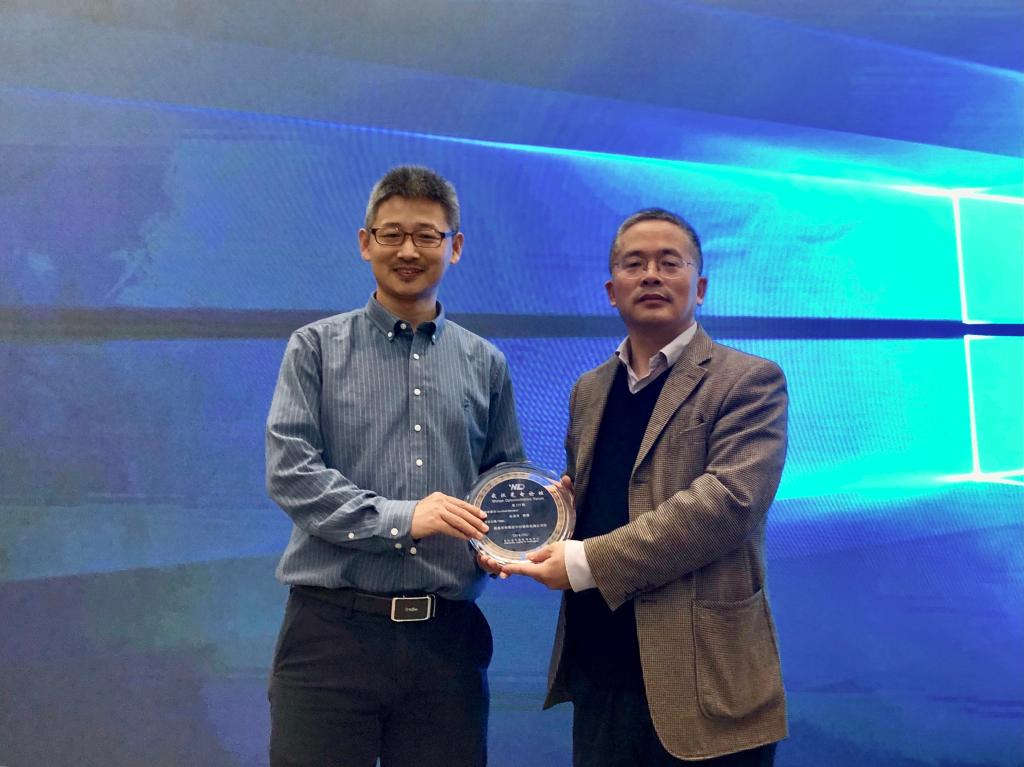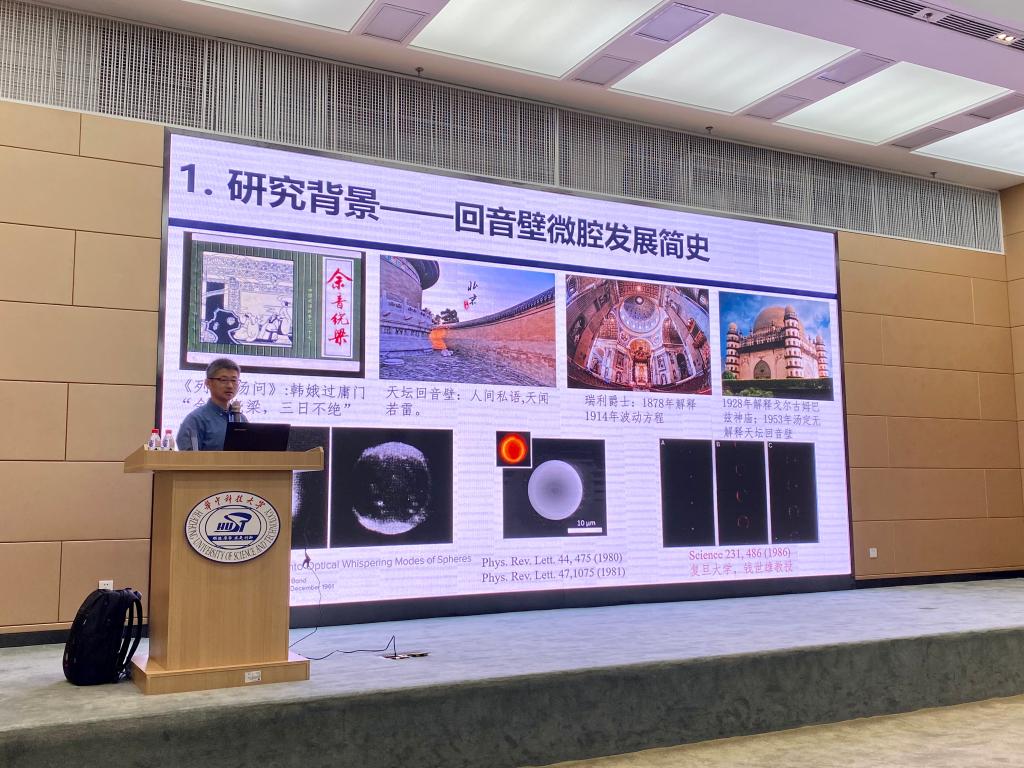WUHAN, China (April 22, 2021) - Wuhan Optoelectronics Forum No. 175 was successfully held in Auditorium C117 at Wuhan National Laboratory for Optoelectronics (WNLO) in the afternoon of April 22. Prof. Qinghai Song from Harbin Institute of Technology delivered an exciting talk entitled Direct observation and control of resonances in silicon microdisks. Dr. Peixiang Lu, from WNLO chaired the forum, and awarded Prof. Qinghai Song the forum medal.

In this talk, Prof. Qinghai Song discuss the following two works. The first work is about the end-fire injection to microdisk. Prof. Qinghai showed a new mechanism for high efficient and broadband coupling between microcavity and silicon waveguide. This method has great application prospects in biomedicine. Additionally, Prof. Qinghai Song demonstrate the direct observations of chaotic resonances. He developed a new technique to map the resonances in silicon microdisks and utilize it to study the underlying fundamental physics including chaos assisted tunneling.

Song Qinghai is Professor of Harbin Institute of Technology. He was a winner of the National Thousand Talents Plan for Young Scholars and the National Science Fund for Distinguished Young Scholars. Prof. Qinghai Song obtained a Ph.D. from Fudan University in 2007. Then, he successively worked in Northwestern University, Yale University, Purdue University and Harbin Institute of Technology. His main research interest is the fundamental physics in nanophotonic systems and their practical applications. In the past few years, he has discovered several new mechanism and techniques for nanophotonics, e.g. bounded states in the continuum based ultrafast laser control, time-reversal optical coupling, and high-performance perovskite optoelectronic devices etc. He has authored more than 200 papers, including 50 papers on Science, Science Advances, PRL, AM, NC, LPR, Nano Letters, ACS Nano, and Optica.